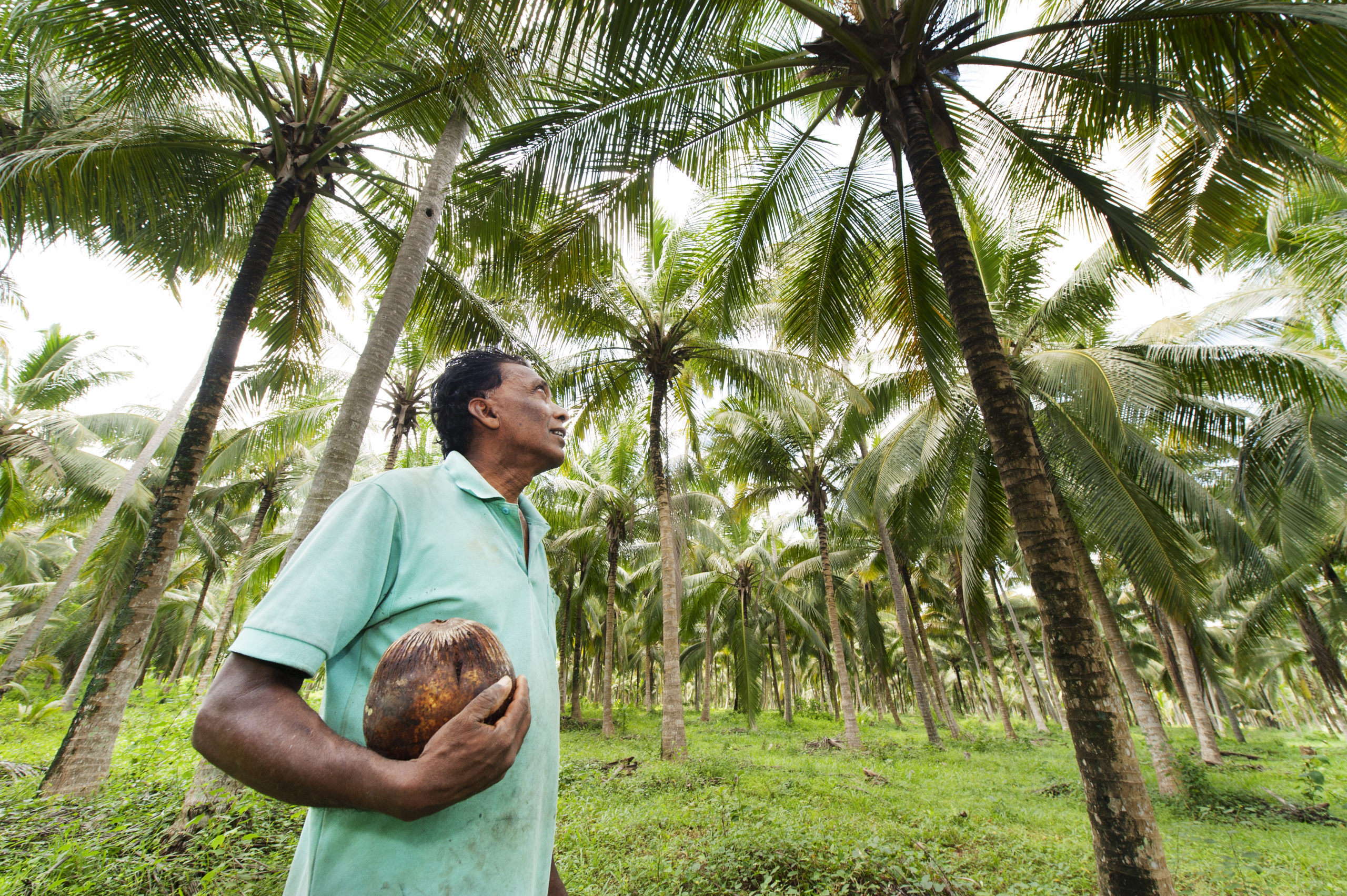Santa Rosa, Calif. (August 10, 2020) – The Regenerative Organic Alliance (ROA), a group of…

Meeting Degradation with Regeneration
Climate crisis has been the topic of summer. And not just because this was the hottest July on record, ever. The UN reports that global climate crisis disasters are happening at the rate of one per week. The devastating impacts of severe weather-related disasters have cost an estimated $520 billion annually and truly an inestimable loss of life.
While we keep an eye on these deeply troubling realities, there is reason for hope. As a subscriber to the ROA mailing list, you already know we have viable solutions right under our feet. There is increasing evidence of regenerative organic agriculture’s power to reverse these trends and everyone is hot on the trail to the data to prove this out. You’ll learn more about Rodale’s efforts in this vein down below. And notably, the Chico State Regenerative Agriculture program just posted a call for submissions to their new open-sourced, peer-reviewed research Journal for Regenerative Agriculture.
We are engaging with an increasing number of think tanks and policy-makers working together towards finding solutions. As one analyst of the IPCC report called out, “this political moment could be leveraged to start a national dialog that drags agriculture policy out of the cellar of the last millennium and into the glare of our climate-changed world.” The opportunity for radical change in our broken food system is upon us.
With the support of our founders and the many brands involved in the ROC pilot as well as the multitudes of companies and organizations who continue to reach out in collaborative ways to join us in building this movement, it fills me enduring optimism. Please keep it coming!
In the meantime, let’s get cooler.
Best,
Elizabeth Whitlow
Executive Director, Regenerative Organic Alliance
The cover photo of the IPCC report was taken by Yann Arthus-Bertrand, an environmentalist and filmmaker of Human and Home. This particular image is a bird’s eye view of the agricultural landscape between Ankara and Hattousa, Anatolia, Turkey.
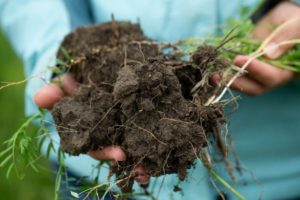
Every Single Action will Make a Difference.
According to the IPCC, the cumulative impact of all land-positive actions will have a real influence on mitigating climate change. There will also be high returns for early actions, including returns not only for the earth but also profits for industry, which are speculated within three years from the adoption of carbon-sinking practices. This is just one of the highlights of the IPCC Special Report on Climate Change, and we sincerely encourage you to watch the video presentation and/or read the full report.
The opening of the video presentation names four crucial truths that guide highest level findings:
- Land is where we live.
- Land is undergoing human pressure.
- Land is the solution.
- Land cannot do it all.
From the IPCC working groups: “Agriculture and forestry account for 23% of human greenhouse gas… Food production along the whole supply chain is currently responsible for up to 1/3 for greenhouse gas emissions.” The statistics grow more alarming, but the solutions are clear. For example, 500 million people live in areas that are experiencing desertification. These people are seeing climate change first-hand. That is why we move forward to reclaim the livable land that has degenerated and to grow the food, feed, fiber, and timber in such a way that reverses climate change.
Balancing carbon storage in vegetation adequately appears to be one of the greatest challenges. And that speaks directly to the ecosystem of soil health. We will be speaking directly to the topic of soil health at the B-Corp Champion’s Retreat later this month on a panel with other regenerative proponents. We are also very much looking forward to participating in the Regenerative Earth Summit in late October on their Regenerative Slam: The Science of Soil Regeneration. This year’s Regenerative Earth Summit is outcomes-based, recognizing the collaborative capacity of business to influence and accelerate systemic change by strategizing the development of market incentives, policy, and supply investment that maximize the benefit to people and planet. You can learn more and attend the Summit by purchasing tickets here. Enter ROC at checkout for 10% off your ticket.
We know that these investments are big for many of you. Though we hope some of you will join us in person, please know we will report back to everyone with synopses of these events in upcoming communications so all of you can stay in the loop.
Photo: Amy Kumler
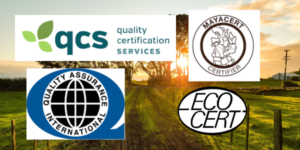
Four Certification Bodies Approved!
As we endeavor the Pilot audits this summer and through early autumn, we are pleased to announce our partners in certification thus far: QCS, EcoCert, MayaCert, and QAI. Several more will be onboarding in January 2020.
Each certification body has gone through the rigorous process of accreditation while requiring their auditors and technical reviewers to complete the ROC trainings and exams. Their commitment has been exceptional and humbling. We are so grateful for the leadership and resources dedicated to enable their teams to execute the highest bar standard in regenerative organic agriculture.
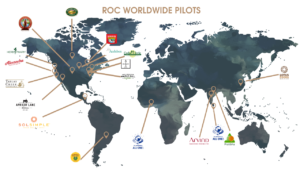
ROC Standard Updates
We are in the thick of audits right now. We are gathering deep learnings from the ground and from these visionary producers about the different challenges of implementing these processes. The next two months will reveal the strength of the ROC Standard and new improvements to the framework overall.
As part of the audit process, we have recently developed the soil health and land management practices sections of the ROC Regenerative Organic Systems Plan (ROSP) to guide auditors through their site visits and allow for full discovery of the innovation and solutions ROC producers are finding along their path. Auditors will be verifying the results of the Soil Sampling as well as collecting key performance indicators that capture different aspects of environmental, livestock and social practices. All this so that we have strong evidence-based data to prove the benefits of regenerative organic practices over time.
In our last letter, we talked about our effective collaboration with the talented contributions of experts on our task forces for the social and animal welfare pillars. They deliberated thoughtfully and made recommendations to the ROA board. We will be publishing more details about our Task Forces, their charter, composition, and findings soon so that operations across North and South stay abreast of any changes to our approach.
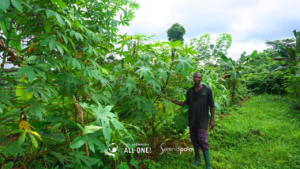
Pilot Participants on the Ground:
Dr. Bronner’s Journey to
Regenerative Organic Certification
A special contribution by Nancy Metcalf
For the last decade, Dr. Bronner’s has fought for meaningful GMO-labeling as well as for organic and fair trade integrity in the marketplace. Now Dr. Bronner’s is providing training and resources to its suppliers so they can adopt regenerative organic practices. These sister companies and suppliers include Serendipol, which grew out of a Sri Lankan tsunami relief effort and produces food-grade organic and fair trade virgin coconut oil, and Serendipalm in Ghana, which supplies Dr. Bronner’s with organic and fair trade palm oil. Both suppliers buy from hundreds of small-scale organic farmers who are implementing adaptations of a potentially super-impactful regenerative organic farming practices, such as mulching and composting, use of cover crops, and in the case of Serendipalm—dynamic agroforestry.
Dynamic agroforestry is a system that mimics healthy forests through integrating tree and understory species that support a range of commercial, subsistence and nutrient cycling benefits. In Ghana, Serendipalm farmers plant a variety of commercial fruit trees (mango, avocado and cashew), oil and coconut palms, and fast-growing papayas and bananas that offer sun-cover to shade-loving cocoa. Teak and mahogany are integrated timber species felled upon maturity to open sun pockets as the forestry system matures. Annual and biannual ground crops (yams, cassava, taro, maize, legumes, ginger and turmeric) support local markets, and elephant grass and legume cover crops protect soil from erosion and fix nitrogen.
Dr. Bronner’s expects both Serendipol and Serendipalm to undergo their audits this autumn. We look forward to sharing the findings in our upcoming newsletters.
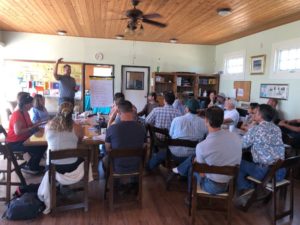
Go West, Rodale, Go West!
As reports of what feels like environmental apocalypse continue to roll out from government institutions, there are giant efforts being made to support solutions. To no surprise, the Rodale Institute is leading a charge with three (!) new regenerative research resource centers from California to Georgia to Iowa.
Straight from Rodale News:
“The new Rodale Institute California Organic Center [in Ventura, California] aims to solve challenges for farmers in the region and across the globe by conducting research in new climates and soil types, and on crops, pests, diseases, and weeds that are most relevant to farmers in these distinct and critical agricultural regions. Ultimately, the center aims to increase the number of organic farms and acreage in the region, help farmers improve soil health and other key metrics like yields and profitability without synthetic chemicals and serve as an organic research and education hub for farmers and consumers everywhere.
We know that organic research is still vastly underfunded compared to the size of the industry in the United States,” said Jeff Moyer, Rodale Institute executive director. “We need more resilient agriculture that can deal with the extreme weather of climate change so that farmers can continue to feed our growing population. That all starts with soil health. With researchers on the ground working on solutions geared for organic farmers in their own communities, we’ll continue to increase both the demand and supply of organic products in this country and around the world.”
Representing thousands of acres of food production, these farmers of both small and large agricultural operations alike gather to learn regenerative organic practices to apply and scale at the Rodale Institute’s Calfornia Organic Center in Ventura.
Read Jeff Moyer’s opinion piece in Food Tank

A quick note on social media
Many of you have asked about our social media and how we are activating. While we cultivate our social channels and customer-facing communications, we encourage you to begin following us on Linked In, Facebook, and Instagram. We are currently planting the seeds of how to use these tools to spread the good word of the work that we (and you!) do, and look forward to sharing our formal launch with you in the next two months.

